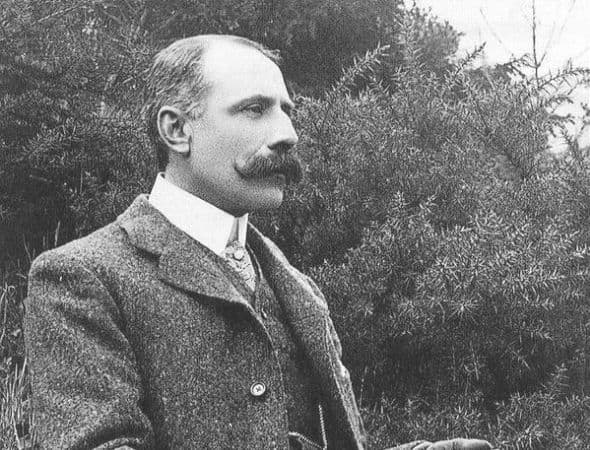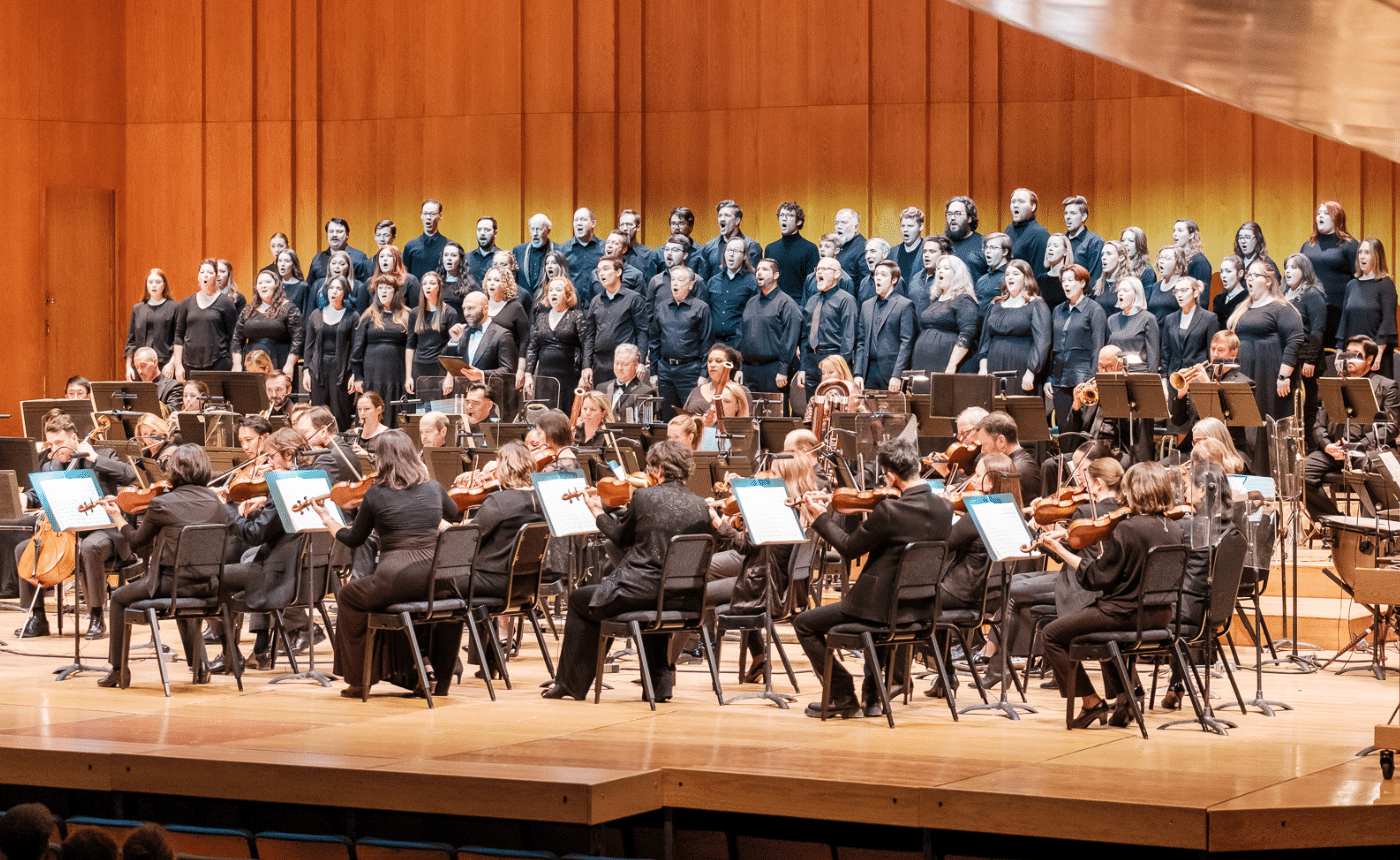ELGAR: Cockaigne (In London Town)
by Jeff Counts
THE COMPOSER – EDWARD ELGAR (1857-1934) – Elgar’s path to modest fame was set before him early, in that both his future renown and its ultimate fragility were predestined by his small-town upbringing. Born near Worcester in the West Midlands, Elgar’s youth was a quintessentially English idyll. His father owned a music shop and encouraged his son’s explorations of the scores and instruments on his shelves. While ranging as widely as the store and the town would allow (quiet pluck and no small amount of genius were on his side throughout his formative years), Elgar taught himself how to compose. It is no surprise then that, with so perfectly “British” a start, Elgar would go on to be a celebrated steward of his country’s artistic reputation.

THE HISTORY – International regard as a pre-eminent master would prove more elusive, however. The Enigma Variations put Elgar on the world map in 1899, but he never really reached that height again (unless repetition counts for something, in which case the excellent 1st Pomp and Circumstance March must be considered his legacy-work). He had many European successes, to be sure, but none so great as Enigma. Long after his death, Elgar’s music was still being called “old fashioned”, as if his output had been too narrowly “Edwardian”, too stuck in its own footprints to resonate beyond its time into a rapidly modernizing age. But this attempt at dismissal ignored Elgar’s many progressive inclinations (Richard Strauss saw them) and left no space for his self-awareness. It was Edwardian London itself that Elgar set to music in 1901 with Cockaigne (“In London Town”), and he did so with wit and pride, not stuffy nostalgia. The word “Cockaigne” has an old and murky lineage, but one solid usage dates to a 13th-century French poem that describes “Cockayne” as a land of “delights, idleness and luxury”. Three centuries later it popped again to describe a completely different fictional utopia of laziness and decadence. Clearly an apt moniker for many times and places, real and not, the term found its way into the dawn of the 20th century as a tongue-in-cheek moral indictment of London’s many social excesses. Elgar spoke of his orchestral tribute to that mighty fin-de-siecle city by saying: “I call it ‘Cockayne’, and it is cheerful and Londony, stout and steaky…honest, healthy, humorous and strong, but not vulgar.” The music traces a succession of iconic scenes that include a romantic meeting of lovers, the peeling bells of a church, the dignified honor of a marching band and the general, good-natured bustle of a cobblestoned street. Elgar dedicated the work to his “many friends, the members of the British Orchestras.”
THE WORLD – Elsewhere in 1901, President William McKinley was assassinated in America, Guglielmo Marconi received the first transatlantic radio signal, the first Nobel Prize ceremony was held in Sweden and H.G. Wells published The First Men in the Moon.











